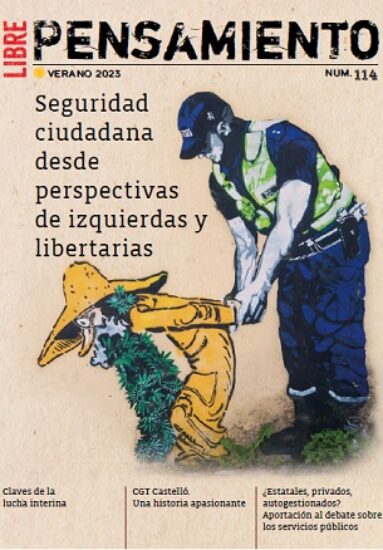Bien sean los medios los que influencian el pensar y los sentimientos de la
población, o bien sea al revés, la preocupación por las contiendas militares de
Norteamérica parece haber amainado, casi diríamos desaparecido. Las guerras en Irak
y Afganistán, con costos que se proyectan en casi dos billones de dólares, han
dejado de ser, por ahora, temas alarmantes y por el momento solo se habla de los 200
millones pagados a los ejecutivos de AIG en primas de «retención», así como nuestro
venerable capitalismo.
Recesión o, quizás le vaya mejor, temor a la depresión, ha dejado sus secuelas no
solo en nuestro sacrosanto Wall Street si no también en la Plaza Mayor. Se nos ha
dicho que la «fogata» de Irak ira poco a poco apagándose, aunque no se nos de
detalles, y es probable que la presencia norteamericana continúe allí por décadas.
Tanto el gobierno como los medios nos han engañado diciéndonos que la calma en Irak,
definitivamente en Bagdad, se ha logrado gracias a la gran estrategia en la oleada
militar de Petraeus, cuando la realidad nos dice que solo el temor de los sunitas es
lo que mantiene ese nivel de violencia bajo en tal ciudad donde la mitad de la
población sunita huyó, y ahora los chiítas les superan en número en una proporción
de 5 a 1.
Al parecer los que llevan las riendas del poder en EEUU piensan que el público no
debe estar envuelto en detalles «pesados» ; esas son cosas que incumben al Pentágono
y al Ministerio de Asuntos Exteriores, asuntos del Imperio que deben ser llevados en
continuidad no importa quien habite en la Casa Blanca. En cuanto a Afganistán, todo
lo que se nos dice, de Obama para abajo, es que las cosas no marchan bien y que las
perspectivas a largo plazo pudieran ser aun más desagradables. Así que Obama,
siguiendo los pasos de su predecesor, continuara en la búsqueda de Bin Laden en ese
territorio al otro lado del globo que semeja al de El Señor de los Anillos.
De acuerdo con mi amigo Mingo, a quien considero un experto in-situ de Afganistán,
tanto como periodista – tercer tour en ese país durante los últimos 7 años – como
estudiante enamorado de la cultura e historia afganas remontándose a la antigua
Bactriana, el interés de EEUU en esa región tiene poco que ver con la democracia en
ese país, los talibanes o al-Qaeda. La invasión de ese país tuvo una luz verde, nos
dice Mingo, gracias al ataque 9/11, sin que la opinión mundial por lo general
pusiera peros al principio ; sin embargo, desde el 2002, la ocupación ha sido juzgada
como imperialista por una gran mayoría ; y, continua mi amigo, el objetivo principal
de EEUU es mantener un fuerte punto de apoyo en esa región para contrarrestar
cualquier acercamiento en relaciones entre Rusia, China e India. y el temor de una
alineación de esas naciones ; una alineación que pudiera cambiar dramáticamente el
poder en el mundo, tanto en el ámbito económico como en el militar.
Pero aun dejando a un lado la subjetividad de un miembro de la prensa. ¿no es acaso
obvio lo que la política exterior es de hecho si observamos los gastos militares de
EEUU en establecer sus «fuertes» por todo el planeta ? ¿Cómo podemos descartar los
miles de millones de dólares invertidos en bases militares para la posguerra en
Irak ? Y lo mismo se puede aplicar a Afganistán donde se está gastando otro tanto,
más de 4,000 millones tan solo en los complejos de Bagram y Kandahar, para crear una
infraestructura militar permanente.
Pensamos no equivocarnos al asumir que el presidente Obama nunca pidió consejo a
Dick Cheney, o a los otros guerreros-de-escritorio que durante los últimos años
llevaron a la nación a callejones militares sin salida, sobre Afganistán. Por lo
que preguntamos, ¿esta pericia que Obama está explotando sobre la guerra en ese
país, proviene del Pentágono, o Asuntos Exteriores, o altos mandos en el frente –
el general Kiernan, por ejemplo – con quien pudiera haber charlado durante esas
breves pero «necesarias» visitas a la zona durante el periodo preelectoral ? ¿O le
llega a Obama el consejo como un consenso de todos ellos ?
Esas tropas que Obama dice añadirá al frente afgano en el 2009 pondrá al contingente
de la OTAN en mas de 87.000, un 63 por ciento compuesto por tropas de EEUU. No
importa el nombre que le demos, este fuerza multinacional empezó siendo un grupo
militar expedicionario que rápidamente se convirtió en fuerza de ocupación bajo el
tutelaje y dirección del Pentágono. Las naciones europeas, muchas de mala gana,
tienen una presencia poco mas que simbólica en Afganistán (excepto el Reino Unido
con el 12 por ciento de la fuerza actual – 10 por ciento después del despliegue de
EEUU en 2009) algo consistente con la hasta ahora amistad y gratitud hacia EEUU. una
gratitud que cada día que pasa se diluye mas y mas.
Por lo pronto sabemos que Obama cuenta con el equipo de Bernanke y Geithner para
aconsejarle en el frente económico. ¿Por qué no darnos la alineación del equipo que
le aconseja sobre Afganistán ? Tan pronto entremos en la depresión sabremos muy bien
como esparcir la culpa ; pero si las cosas se ponen feas en Afganistán, como
ocurriera hace 34 años en Vietnam, ¿no seria una buena idea el que Obama tuviera
algún subordinado a quien pudiéramos echar la culpa ? Junto a Obama, claro está.
© 2009 Ben Tanosborn
May we ask who Obama’s experts on Afghanistan are ?
Whether it is the media that influences the thinking and sentiments of the
population, or it is the other way around, concern about America’s military
engagements seem to have quieted down to a whisper in the United States. Iraq and
Afghanistan are no longer trillion-dollar issues to worry about, not when 200
million dollars in bonuses to AIG executives are at stake, or the morality of our
venerable form of capitalism.
Recession or, better still, fear of depression, has really taken a toll not just on
our sacrosanct Wall Street but on Main Street as well. We’ve been told of the
winding down in our involvement in Iraq, yet have no clue as to details that might
require our presence there for decades. We have been misled by government and media
to think that the apparent calmness in Iraq, certainly in Baghdad, is the result of
the «successful surge» when reality tells us that only fear by Sunnis is keeping the
violence down in that city where half of the Sunni population has fled, now Shiites
outnumbering them 5 to 1.
It seems as if those holding the reins of power in the US feel that it is not the
public’s concern to be involved with such onerous details ; those are Pentagon’s and
State Department’s affairs, for the business of the empire must continue on
regardless who occupies the White House. As for Afghanistan, all we are being told,
from Obama on down, is that things are not going well and that the long term outlook
could get nastier. So President Obama, following in the steps of his predecessor,
will continue looking for Bin Laden in that Lord of the Rings’ terrain half a world
away.
According to my friend Mingo, who I consider to be an in-situ expert on Afghanistan,
both as a journalist – third tour there in the last 7 years – and as an enamored
student of Afghan history and culture dating back to ancient Bactria, America’s
interest in that region has little to do with democratization, the Taliban or
al-Qaida. Invasion of that country was afforded a green light, he claims, because
of the 9/11 attack, with little or no condemnation from world opinion during the
very early days ; however, since 2002, occupation must be judged as imperialistic,
with US’ principal aim being at maintaining a foothold in that region to counter any
possible warming of relations between Russia, China and India ; and the fear of any
major economic and/or military alignment among them. An alignment that could
dramatically shift power in the world, my friend contends.
But subjectivity from a member of the press aside, isn’t obvious what our foreign
policy might be as we look at the sizeable military expenditures America makes in
establishing military «forts» all around the world ? How can we dismiss the billions
spent in military bases for the post-war era in Iraq ? And that applies to
Afghanistan as well, where untold billions of dollars are being spent, over 4
billion in the Bagram and Kandahar complexes alone, in creating a military
infrastructure of permanent nature.
We feel safe when assuming that President Obama never sought advice on Afghanistan
from Dick Cheney or, for that matter, any of the other desk-warriors that during the
past few years got this nation involved in de facto military dead ends. So, we
can’t help but wonder. is the expertise that Obama is tapping on that war coming
from the Pentagon, the State Department or some field military brass – General
Kiernan comes to mind – that he could have met during those brief political
must-visits to the war zone he made last year prior to the November election ? Or is
the advice coming to him as consensus from all above sources ?
Those troops that Obama is adding to the Afghan front during 2009 will bring the
NATO contingent to over 87,000, about 63 percent of them from the United States. By
whatever name, this multi-nation force is for all intents and purposes an
expeditionary force which quickly became an army of occupation under the tutelage
and direction of the Pentagon. European nations, most grudgingly, have a token
presence there (except for the UK with 12 percent of the total force – 10 percent
after the 2009 US deployment) consistent with that never ending gratitude and
friendship they appear forced to show towards the US. a gratitude that is wearing
thinner and thinner.
By now we know that Obama is counting on his Bernanke-Geithner Team to advice him on
the economic front. Can he just tell us the composition of the team that is
advising him on Afghanistan ? As we head into depression we’ll know how to spread
the blame ; but if things turn ugly in Afghanistan, as they did 34 years ago in
Vietnam, shouldn’t there be some underlings to soften the blame-blow for Obama ?
© 2009 Ben Tanosborn
Fuente: Ben Tanosborn













